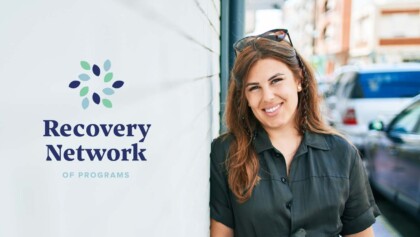Ryan McLaughlin, RNP Recovery Coach
Mental illness and addiction have been in my family for at least 4 generations, and probably beyond. Both seemed to be hereditary to some extent, and in many cases they are a package deal (co-occurring disorder). Besides my own personal struggles with each, I have also seen it take its toll on many of my family members. My father and grandfather both struggled mightily with both depression and substance abuse. My grandfather was a severe alcoholic for much of his adult life. He finally found long term recovery around the age of 50. He passed away from an aneurysm with 17 years of continuous sobriety. My father has suffered from substance abuse on and off for years. But his biggest battle was with mental illness. He has been diagnosed with manic depressive disorder (bipolar) and severe depression during his lifetime. He twice was hospitalized from the illness for extended periods of time. He received ECT (electroconvulsive therapy) during both of those stays. The last time being in his early to mid 50’s. I also have uncles and cousins on my father’s side who are afflicted with either one or both illnesses. Needless to say, there is a strong hereditary predisposition.
In my teens, I was diagnosed with clinical depression. I suffered from extremely negative self talk. I was very angry and aggressive. My relationships were strained and as a result I began to isolate. I was put on a multitude of medications combined with endless attempts of therapy. During this time, I began self medicating to alleviate my symptoms. Inevitably, the drugs and alcohol eventually made it worse. And throughout the next 15 years it was a continuous struggle to deal and control the depression and mounting addiction problem. During this time I had mediocre to moderate results trying many things. Almost all the resources and tools I tried would eventually fail or I would quit before they had a chance to work. Throughout this time I tried MAT, CBT, DBT, amino acid therapy, acupuncture, hypnosis, diet changes, etc. After exhausting so many outlets to find relief, I began to become hopeless. I saw a future of continuous rehabs, and continuous failed attempts to cope with my mental illness.
Dealing with my mental illness takes work, day in and day out. My illness does not take days off, so neither do I. Just like my addiction, I am not cured. But today I have the tools to manage it effectively. There is no doubt that stopping the use of all mind altering substances has played a role in overcoming my depression. The two feed off of each other. But when I’m not using drugs, I still have a tendency to be depressed if i don’t practice a few things daily. My mental illness has to be combated from four different angles to be managed. I have to work on mental, emotional, physical, and spiritual (M.E.P.S) aspects of wellness. Here are the tools I have used to improve each dimension:
- MENTAL/EMOTIONAL
- Positive Affirmations
- Goal setting
- Working with mentor/sponsor
- One on One Therapy (CBT)
- 12 Step Fellowship
- Medication
- Leisure Activities
- PHYSICAL
- Cardiovascular Exercise
- Strength Training
- Recreational Activities
- Healthier Diet
- SPIRITUAL
- Prayer/Meditation
- Reading
- Helping Others
- Spending Time in Nature
I never do all of these daily or perfectly, and never expect to. I continue to add and subtract tools as I go. My recovery is a process that includes a lot of mistakes, which in turn, keeps me humble. And humility allows me to grow. I do my absolute best to stay honest and accountable to myself and others. Overall, I have found that the key that brings all of these together is connection. Connection to the universe, to myself, and to other people. The more connected I am, the better my mental health becomes.


